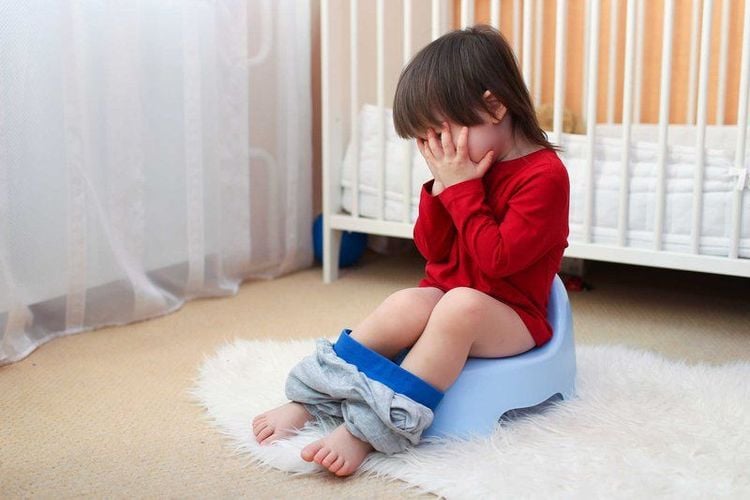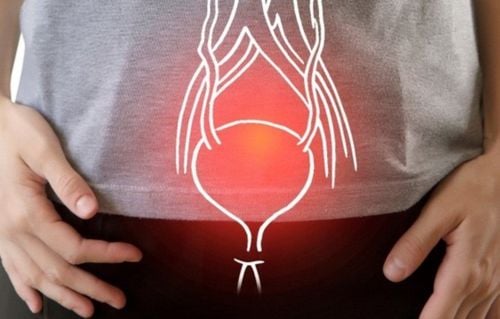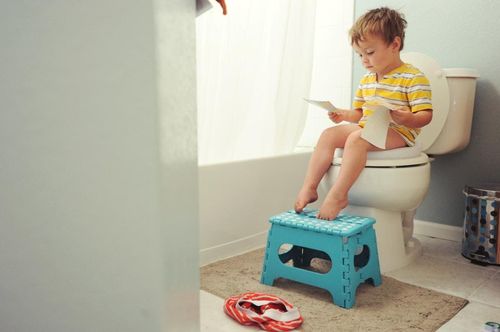This article was consulted by Le Thanh Cam - Specialist Level II, Pediatrician - Department of Pediatrics - Neonatology - Vinmec International General Hospital Da Nang.
Urinary retention is a condition of difficult urination, feeling the urge to urinate but being unable to do so. This phenomenon can occur in anyone, of any age or gender. Children are at the highest risk of urinary retention. Children in this situation often become restless, uncomfortable, and cry, causing worry and anxiety for their parents. So, what should we do when a child has urinary retention?
1. What is urinary retention?
Normally, when a child's bladder contains about 60-300ml of urine (depending on age), it stimulates signals that cause feeling the urge to urinate. Urinary retention is identified when a child shows signs of feeling the urge to urinate. But cannot do so, and this condition lasts for more than 12 hours. Although acute urinary retention is not common in children, it requires prompt emergency treatment.

2. Signs of Urinary Retention in Children
Some signs that indicate a child has urinary retention are:
- Restlessness and discomfort;
- Lower abdominal pain;Pain, tightness, and a palpable round mass in the lower abdomen;
- The child reports feeling the urge to urinate;
- A small amount of urine, just a few drops;
- Weak urine stream.

3. Causes of Urinary Retention in Children
There are many causes of urinary retention. In children, the causes include:
- Neurological disorders are the most common cause and can lead to recurrent urinary retention. Injuries to the lumbar region, myelitis, encephalitis, surgery in the sacrococcygeal region, etc., can cause neurogenic bladder;
- Constipation can also be a cause of urinary retention in children: prolonged inability to pass stool leads to excessive accumulation of feces in the intestines, causing compression of the urinary tract in children;
- Children with cellulitis;
- Boys with phimosis;
- Girls with labial adhesions;
- Children with congenital disorders such as posterior urethral valves, polyps, etc.;
- Post-operative complications;
- Children with bladder stones;
- Infection and swelling of the prostate gland, compressing the urethra;
- Children use medications with side effects that cause urinary retention, such as antihistamines, antidepressants, etc.
4. What to do if a child has urinary retention?
There are several solutions to treat urinary retention in children:
Home care: If parents cannot identify a specific cause of urinary retention (from the list above), they can monitor and care for the child at home using the following methods:
- Let the child sit in a warm bath: Warm water helps relax the pelvic floor muscles, making it easier for urine to pass;
- Use a warm towel to apply to the child's lower abdomen;
- Take the child to the restroom and turn on the faucet to create a visual and psychological effect. Then, hold the child over the toilet to encourage urination;
- Encourage the child to walk around the house to make urination easier;
If the above methods don't work and the child still can't urinate, parents should take the child to the hospital so doctors can perform urinary catheterization of child as well as diagnose and treat the causes of urinary retention in children.
Bladder catheterization: This procedure involves inserting a urinary catheter into the bladder to drain urine.
Medication: Using diuretics will help the child urinate more easily. In addition to prescribing medication, the doctor will provide advice and instructions for parents on how to care for the child at home, such as:
Ensure the child drinks enough water;
Encourage the child to walk around the house to make urination easier;
Provide a diet rich in fresh fruits and vegetables to increase fiber intake and prevent constipation.
Encourage the child to urinate as soon as they feel the urge to pee.
5. Preventing Urinary Retention in Children
If a child does not feel the urge to urinate and cannot urinate throughout the day, parents need to closely monitor the child's symptoms. If the child is still cheerful and does not have abdominal pain discomfort, or tightness in the lower abdomen, it is likely that the child is dehydrated and has not drunk enough water throughout the day, so the bladder does not contain urine. The solution in this case is to ensure the child drinks enough water and eats plenty of vegetables. If the child resumes normal urination, they are healthy.
If the child does not urinate for a long time, and there is no tight mass in the lower abdomen, but the child has swollen limbs, headaches, restlessness, and discomfort, they may be experiencing kidney failure. In this case, parents need to take the child to the hospital to see a doctor for prompt treatment.
Urinary retention in infants is a condition where the child feels the urge to urinate but cannot do so, or the amount of urine excreted is too little. There are many causes of urinary retention in infants, so it is necessary to take the child to a doctor for examination, to determine the cause of urinary retention, and to receive promptly emergency treatment. Prolonged urinary retention will further affect the urinary system.
Vinmec International General Hospital is one of the very few hospitals in Vietnam with pediatric urologists available within the Department of Pediatrics, helping children receive specialized treatment from the beginning, resulting in better effectiveness and shorter treatment duration. The doctors are all highly qualified, experienced, and deeply trained in Pediatrics. The modern, multipurpose ultrasound equipment system helps for faster and more accurate diagnosis.
Please dial HOTLINE for more information or register for an appointment HERE. Download MyVinmec app to make appointments faster and to manage your bookings easily.














